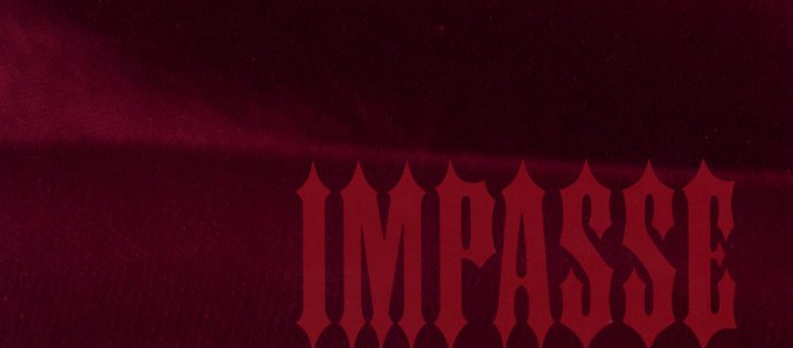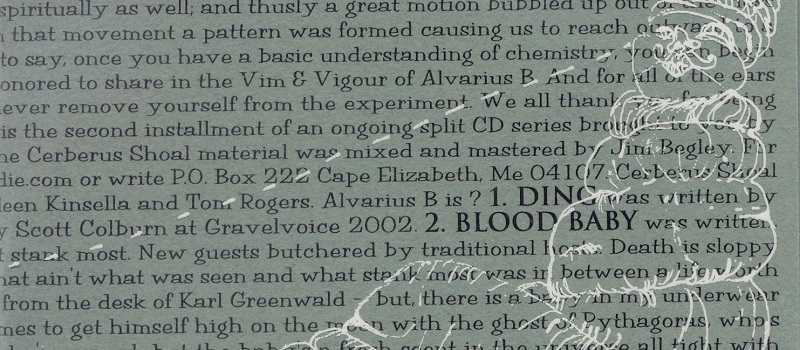Richard Buckner, like his music, is a bit of a puzzle.
The only thing that rivals the range of the labels that have released his work — from major labels MCA and Rykodisc to Chicago indie Overcoat Recordings — may be the scope and diversity of the musicians who have appeared on them. In addition to working with frequent collaborators Joey Burns and John Convertino, Buckner can boast contributions in his canon from the likes of Marc Ribot, Howe Gelb, David Grubbs, John McEntire, and Syd Straw.
Then there’s the music. His songs are deceptively organic-sounding hybrids of alt-county, indie rock, bittersweet pop, and American folk music. Driven by acoustic guitar and a voice that moves with astounding ease between the tender and the weatherworn, Buckner’s works are frequently straight-from-the-heart affairs. Second looks, however, reveal an intricate attention to composition and a sense of lyricism that critics and alt-country aficionados have yet to give proper credit.
For an example, look back to the year 2000. While everyone held their breath to see what Jeff Tweedy was planning next, Buckner parted ways with MCA and quietly released a one-track record with multiple musical passages, all cut and pasted together to reflect the streamlined narratives of Edgar Lee Master’s Spoon River Anthology.
Two years after that musical conversation with Masters, listeners are greeted with Impasse, a 15-song recording that lends more weight to the notion that Buckner’s sound just cannot be easily categorized. On Impasse, Buckner exhibits skill in crafting both dense, guitar-centered, verse/chorus/verse rock numbers and more reflective and fragile fare. What’s more, this time out, Buckner performs almost all of the instruments on the record. He is backed only — and impressively — on drums by his wife, artist Penny Jo Buckner.
The songs themselves vary in scale as much as they do in sound. Buoyant and even poppy rock pieces like “… & the Clouds’ve Lied” are paired with ballads such as “Put on What You Wanna,” one of the most lovingly crafted pieces Buckner’s written on this side of “Ariel Ramirez,” from 1998’s Since.
There are pieces like “(Loaded @ the Wrong Door,” a pop gem with bass and keyboard lines so instinctive, you don’t notice they’re there until you start humming along with them. A bridge in “(A Year Ahead) … & a Light” is alone worth the price of admission. Three quarters of the way through the track, a bouncy guitar-and-drum rhythm comes to an abrupt stop to allow a slide guitar and keyboard to come to the fore as they dance through a series of scales.
If anything, the record scores even better for the subtlety of its detail than the note of particular digressions. “Dusty from the Talk” is a standard Buckner rumination, all acoustic guitar and wailed vocals. But keyboard measures over the chorus and the occasional use of a distorted electric guitar elevate the song to one of Buckner’s best in recent years. These unexpected touches play a large role throughout and almost betray the façade of sandpaper roughness on some of the songs. These are not diamonds in the rough. They are diamonds and they are the rough. Listen to how the tangled rumble of acoustic guitars meshes perfectly with lingering notes on a xylophone on the album opening “Grace-I’d-Said-I’d-Known,” and you’ll see what I mean. In the past, Buckner may have stripped the song bare to reveal his intentions, but on Impasse he builds around the core of things, and the result is impressive.
Impasse does have its interludes that border on becoming lulls — the twangy guitars of “A Shift” crash to a halt before they even get started; the title track and the record-closing “Stutterstep” feel like anti-climactic fragments — but they are not detractions from the record so much as asides. On a record that is both strangely familiar and distinct from its predecessors, the ability to remain that consistently vital says a lot. And, regardless of the musical and lyrical puzzles that Buckner may produce, that vitality lends itself to categorizing Impasse as one of his finest works to date. – Delusions of Adequacy, Feb. 17, 2003




